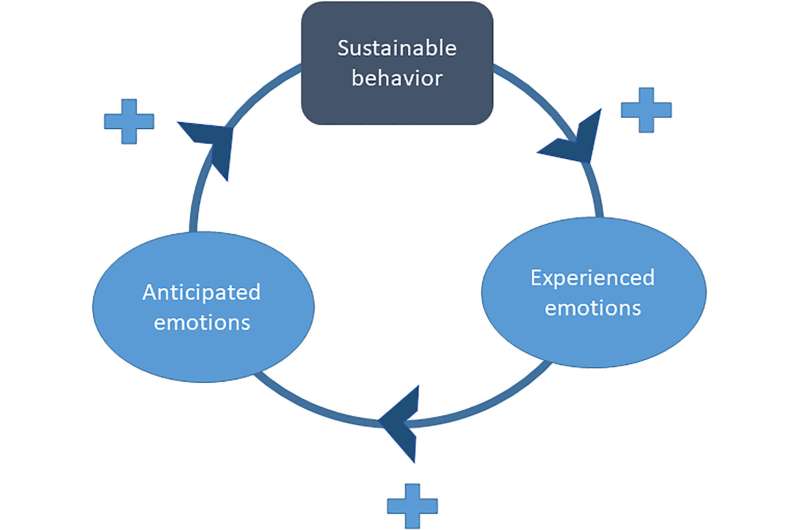
Research from the University of Canterbury explores the crucial role emotions play in behavior change and decision-making when acting sustainably.
Dr. Claudia Schneider looks into what affects people’s behavior in climate change mitigation and sustainability, and what might motivate them to take positive action, such as choosing walking over driving or reducing plastic waste. The work is published in the journal Emotion Review.
Dr. Schneider witnessed devastating consequences of climate change in vulnerable communities and the challenges of environmental communication and sustainable behavior when she was a social work volunteer in Nigeria and with a rainforest project in rural Nicaragua. “This motivated me to work on climate change behavioral elements and the role environmental communication plays, with a focus around the world,” she says.
Dr. Schneider has consulted on development work, led intervention projects, and conducted field research in Africa, Latin America, and India, in addition to lab-based and online survey research in Europe, Asia, America, and Oceania. One key insight from her research—spanning several studies with large samples of 500 to over 1,000 participants—is that emotions matter.
“How people feel influences how we act in many situations. Research shows that emotions are key indicators of pro-environmental engagement, but also need to be used with care and caution by environmental communicators, so it doesn’t lead to emotional numbing or reactance.”
Some of her earlier work showed that positive environmental communication is more beneficial in instilling pro-climate action compared to negative emotional messaging.
Findings showed people were more inclined to positive actions if they were encouraged to take pride in their efforts, rather than feeling bad if they didn’t.
Her latest research investigates recent advancements at the “intersection of emotions and pro-climate action,” identifying important open questions for further work in this area to help support the road to sustainability.
She says these questions focus on impact as not all environmental actions are equally beneficial for mitigating the climate crisis. It is also important to have a focus on sustained, long-term behavior change as opposed to one-off action—for instance reducing plastic use and waste as a repeated action and lifestyle change; and looking around the globe, especially the Global South, versus just focusing research on western, industrialized countries.
“Climate change is a global problem and for a long time, research on climate perceptions and behavioral mitigation avenues has focused disproportionality on the Global North.
“How a country is or will be affected by the consequences of climate change can influence how people in different parts of the world think, feel, and act in the face of climate change and sustainability. It is important to understand people’s perceptions and attitudes around the world. We need to tackle this crisis together—we all play a crucial part.”
More information:
Claudia R. Schneider et al, An Emotional Road to Sustainability: How Affective Science Can Support pro-Climate Action, Emotion Review (2023). DOI: 10.1177/17540739231193742
Provided by
University of Canterbury
Citation:
What makes people tick environmentally? (2024, May 7)
retrieved 8 May 2024
from https://phys.org/news/2024-05-people-environmentally.html
This document is subject to copyright. Apart from any fair dealing for the purpose of private study or research, no
part may be reproduced without the written permission. The content is provided for information purposes only.

